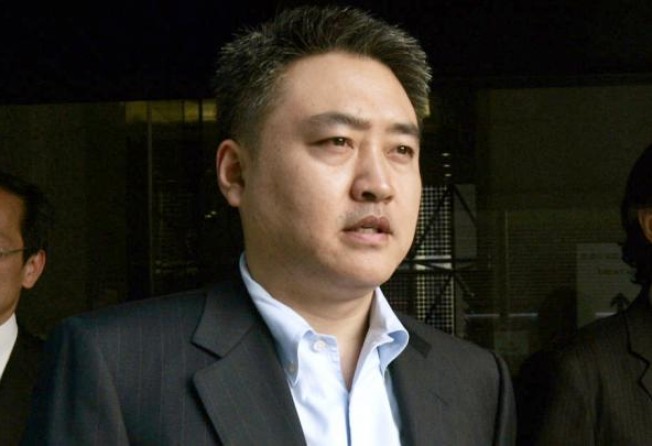Investors in insider trading case face delay in getting money back
SFC's HK$23.3 million claim for victims has to wait after city's biggest insider trader Du Jun plans to take his appeal to the highest court

Investors are not expected to receive compensation anytime soon from Hong Kong's biggest insider trader and former Morgan Stanley managing director, Du Jun.
A court yesterday heard that Du is seeking to appeal to the Court of Final Appeal - the top court in the city - after the Court of Appeal dismissed his appeal against conviction last month.
This means the Securities and Futures Commission will now need to wait for the top court ruling before it can start legal proceedings to seek claims against Du for about HK$23.3 million compensation to investors who suffered from his misconduct.
In an unprecedented ruling last month, Court of Appeal vice-president Mr Justice Frank Stock and two other judges slashed Du's fine to HK$1.688 million from the HK$23.3 million imposed by the District Court in September 2009. This is to allow Du to have the money to pay the victims of his insider dealings in 2007.
Under the Securities and Futures Ordinance, the SFC can seek a court order to require those who have committed misconduct to compensate investors who suffered from it.
The commission has not disclosed how it would trace the victims who traded opposite to Du's buying orders in 2007 in the Citic Resources shares when he received inside information about the company.
In late 2006 and early 2007, Du was managing director of Morgan Stanley and involved in helping listed energy firm Citic Resources to issue bonds to buy a Kazakhstan oilfield and to carry out oil price hedging.
Du received e-mails that were sent to a few bankers in early 2007 to update them about the deals.
Between February and April 2007, he bought Citic Resources shares nine times for a total of HK$87.1 million, using his savings and HK$50 million in borrowed cash.
This is the largest insider trading case in Hong Kong in terms of the amount involved.
When the deals were announced in May 2007, the firm's share price rose sharply, and Du made HK$23.3 million in profit. A month later, Morgan Stanley learned of his trading activity, sacked him and reported the case to the SFC. Du then left for Beijing and was arrested in 2008 when he returned to Hong Kong.
After the arrest, the SFC obtained a court order freezing HK$46.59 million of Du's assets to ensure he had the money to pay back investors. But the frozen funds dwindled to HK$7.58 million, after Du used HK$23.3 million to pay the fine and legal fees.
The appeal judges last month upheld Du's conviction of insider trading after finding a host of evidence to support it. They, however, agreed to reduce his sentence to six years in prison from seven. It remains the toughest sentence handed down in the city for insider trading.
After the Court of Appeal reduced his fine, Du received a HK$21 million refund from the government.
The SFC yesterday sought a Court of First Instance order to require Du to pay HK$16.39 million out of the refund so as to increase the frozen funds in the court to HK$23.96 million to prepare to pay compensation to investors.
Du did not object to the SFC application, the court heard yesterday.